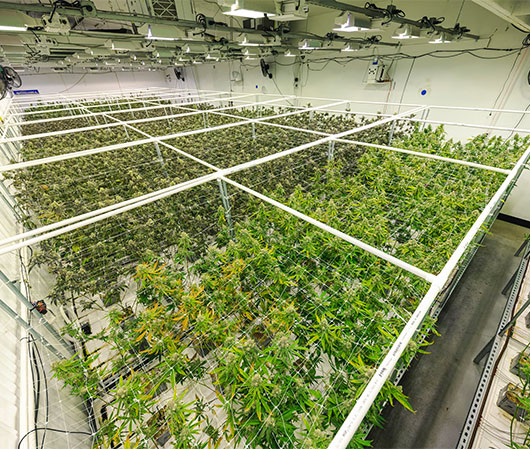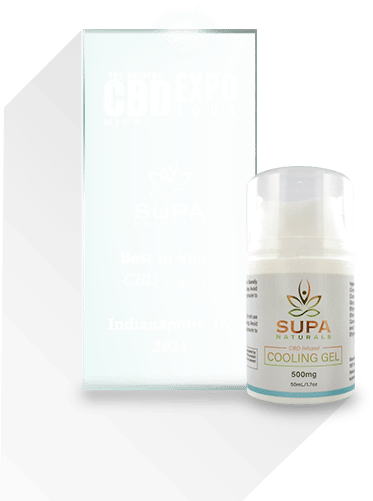Why Does CBD Cost So Much? The Price to Pay When Making Top-Notch CBD Products

The popularity of CBD has occurred in a remarkably fast period of time. Indeed, the product went from relative obscurity in the middle part of the decade to fully legal in most places in late 2018. From there, it’s growth skyrocketed, with millions of Americans trying the product. Its popularity stems from a bevy of scientific research that has indicated that CBD may help users with a variety of physical and emotional issues. These reports, echoed by the anecdotal experience of millions of users, resulted in a CBD boom.
However, CBD’s relative newness has led to a ton of questions and confusion about the product. One such example are questions on its price. Indeed, broadly speaking, the price of CBD seems to fluctuate wildly. However, as has become painfully apparent, high-quality CBD tends to be expensive.
Why is this the case, and what does the future hold for the price of CBD? Here’s more information on that very important topic.
High-Quality CBD Tends To Be Expensive
Broadly speaking, CBD is more expensive than an array of other supplements. Take a look at our CBD products. 500 milligrams of Full Spectrum CBD costs $46. Other CBD brands may be less expensive, to be sure, and other products, in general, are certainly not going to cost you nearly as much money. However, that low cost can hide serious problems with a product, as it is very possible that lower cost CBD items may not have undergone the same rigorous processing and testing as a more expensive brand.
Less expensive CBD products are typically the types that you can purchase at a gas station or a grocery store, as opposed to directly online from a vendor, or at a CBD specialty store. On one hand, you may think that you are finding a great deal when you find this gas station CBD. However, it is worth considering some questions when you look at these products, including:
- What sort of processing did it undergo?
- How much quality assurance has been done on the product in order to ensure that it is still safe?
- Has it undergone any third-party testing in order to confirm that all of the ingredients in the product are appropriately labeled?
- Who made the product, who processed it, and what is their experience when it comes to manufacturing CBD?
All of this leads to the question: Why is CBD so expensive? Some of the answers can be found in the questions above: CBD is an expensive product to make because so much goes into its growth and processing. However, there are more specific items below that can address these issues.
Planting & Growing

Simply put, the growth and processing of hemp and CBD is not cheap.
Processing CBD involves a whole array of steps, including:
- Purchasing hemp seeds from a wholesaler, a process that is strictly controlled and heavily regulated. This can be difficult to plan for, as the price of hemp seeds tends to fluctuate.
- Growing the CBD, which involves planting, fertilizing, irrigation and more. The strict laws which govern most CBD processing often means that no herbicides or pesticides can be used, setting up a more labor-intensive growth process.
- The plants must be extensively monitored, as no male plants – which can be used for purposes of marijuana – can be used for the purposes of growing hemp. Any male plants must be destroyed.
Furthermore, in many cases, farmers that manufacture hemp are switching to another crop. Thankfully, there is an entire playbook for growing hemp, but that doesn’t mean that switching from one crop to another is cheap or easy. The demand is there, but that doesn’t mean that the supplies are, and farmers will often incur a significant cost when purchasing new equipment, rearranging their crop layout, hiring new staff and more.
Since CBD and hemp growth is so new, many farmers are still learning by experience. In many cases, farmers have lost whole acres due to errors, and the process is wildly unpredictable. This will likely change as the learning curve flattens, but for now, all of these errors have the effect of driving up the cost of CBD.
This pain is also exacerbated by the demand for hemp. Of course, demand is through the roof, as CBD continues to skyrocket in popularity. However, the pipeline for trained professionals who know how to work with hemp is dry. Since the field is so new, there has not been years of educational opportunities to give people an opportunity to work in the hemp or CBD sector. Those who are fully trained experts can have the pick of any job they want, and have the capability to name their own price. This fierce competition for staff drives up costs.
Start-Up Costs
It is commonly understood that business is more expensive when it first gets started than after it has become well-established. There are many reasons for this, but most are associated with the costs of getting a business going. Investing in equipment, accounting, legal fees, staff hiring, and additional start-up costs can be an extremely expensive process. Companies can incur significant debt and must raise the money necessary to pay those debts off.
These pressures are even more acute with the hemp and CBD industry. The entire industry is relatively new, meaning that regulations are just starting to be implemented and enforced. Many companies don’t know what they are doing since they are just starting out in the market, and even experts must keep a constant eye on the ever-shifting regulatory environment. All of this has the impact of driving up costs as companies work to ensure that they are operating within all appropriate regulations.
Marketing

For most companies, marketing may not be a breeze, but it follows a pattern well established by many years, if not decades, of work. Laws are understood. A target market has been established. People know a brand, or at a bare minimum, an industry. The vast majority of places are happy to accept your dollars in exchange for advertising revenue.
When it comes to CBD, that’s not the case. At all.
CBD may have been tried by millions of Americans, but the vast majority still have no idea what the compound is. It’s association with marijuana has produced a negative connotation that makes people think CBD is more about getting high than taking a supplement to improve their health. The actions of certain bad vendors have made people feel cheated and like they are consuming a product that is poorly made. Advertising can’t be done everywhere – places like Facebook have banned some CBD products from being advertised, and Amazon doesn’t allow for CBD to be advertised or sold on its website, although that prohibition is loosely enforced, at best.
All of this is to say that marketing for a new industry is complicated and expensive. Vendors not only have to take the time to differentiate their product from an already crowded market space, but they have to simultaneously fight against some of the misconceptions that have damaged the CBD brand in general. They can’t simply talk about their competitive advantage when compared to other products. It’s the equivalent of McDonald’s having to describe what a Hamburger is.
All of this is to say that marketing for CBD is more labor intensive and time consuming than marketing for other industries. This then drives up the price of CBD.
Testing
The U.S. Food & Drug Administration has yet to set up an adequate regulatory system about CBD requirements, saying that such a system is years away. Broadly speaking, the only actions that the FDA is really done is send cease & desist letters to companies which have made medical claims about CBD, something that is strictly prohibited in virtually all cases.
This lack of consumer protections creates a major problem within the CBD space, because it allows for less than scrupulous vendors to produce lower quality products that may violate the law, make customers sick or mislead them. This idea was confirmed by a 2017 University of Pennsylvania study. The study examined 81 different CBD products and found that nearly 70% of them were mislabeled.
As a result of these issues, and as part of an effort to build consumer trust, many companies turn to third-party vendors in order to confirm what is in their products. These vendors are paid by the CBD company to produce a document called a Certificate of Analysis. That document is made publicly available for review by consumers so they can determine what products are in a CBD product.
At SUPA Naturals, all of our CBD products contain Certificates of Analysis. Indeed, you should never purchase any CBD product without a Certificate of Analysis, as you will have no way to confirm what is actually in the product. However, it’s important to note that this process is not cheap. Contracting with a third-party vendor to conduct extensive testing on every batch of CBD produced can drive up the price of the product. If the FDA had stronger regulations, or bad actors had not hurt the credibility of this industry, it is highly possible that third-party testing would not be necessary. However, that’s not the case, and that’s why third-party testing is a requirement: It helps to build customer trust.
Regulatory Concerns

As noted above, the regulatory state surrounding CBD is questionable at best. The FDA is making some enforcement actions but doing so despite the lack of more fixed regulatory guidance. Individual farmers and processors must thus be flexible and ready to change their approach at a moment’s notice.
This grows more complicated when one factors in the states. While the FDA regulates the product at the Federal level, the passage of the 2018 Farm Bill required that any state which wanted to grow hemp submit plans for approval to the U.S. Department of Agriculture. Among other items, these plans had to contain enforcement measures, information on how farmer’s products would be tracked, state regulations, physical restrictions on who can farm hemp and more.
None of this comes cheap. Indeed, complying with governmental regulations can be expensive, and all of this further rives up the cost of hemp and CBD. This gets even more complicated when one considers that all fifty states have fifty different sets of regulations, and all regulations may vary widely from each other. All of this has a way of ensuring that the process by which CBD is regulated is non-standard, and all of this means that CBD manufacturing is more expensive.
CBD’s expense also comes as a result of it being a brand new industry. Think about virtually any industry in the world right now: Recreation, restaurants, retail, etc. They all have a relatively set path for start-up costs, marketing, legal concerns, and more. Yes, each industry varies, and there is always considerable variability within each industry and depending on a variety of specific circumstances. However, generally speaking, the newness of an industry leads directly to an increase in costs, as there is quite a bit of trial and error involved.
Such is the case for CBD. Despite its rocketing growth, the industry is still brand new. As a result, many advocates and industry professionals are still trying to navigate an uncertain market under a rapidly shifting regulatory system. Companies that don’t care about customer safety or satisfaction – those who are looking to make a quick buck – can skip many of these costs and take shortcuts.
However, for legitimate CBD vendors, that simply isn’t an option. To be sure, these companies want to make money, but they want to do so safely and in a way that will maximize their long-term success by enhancing their customer’s satisfaction. This is exactly why the cost of high-quality CBD tends to be relatively high – good companies want to make sure their customers are happy, safe and well-served.






